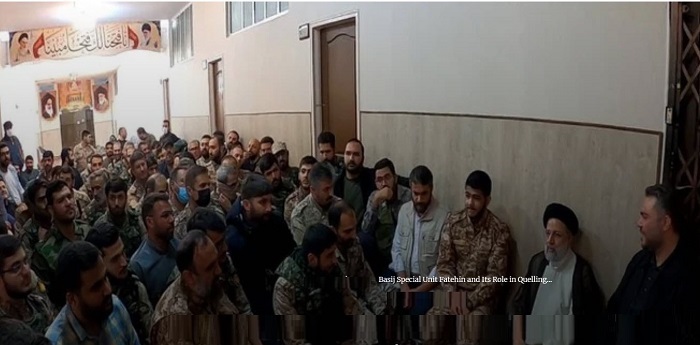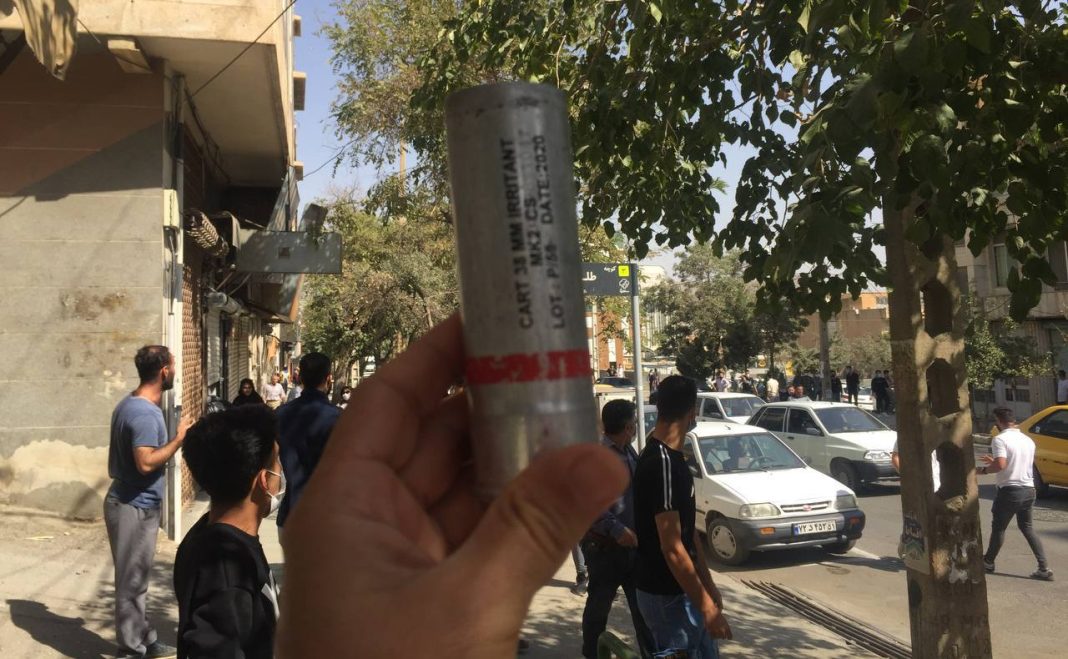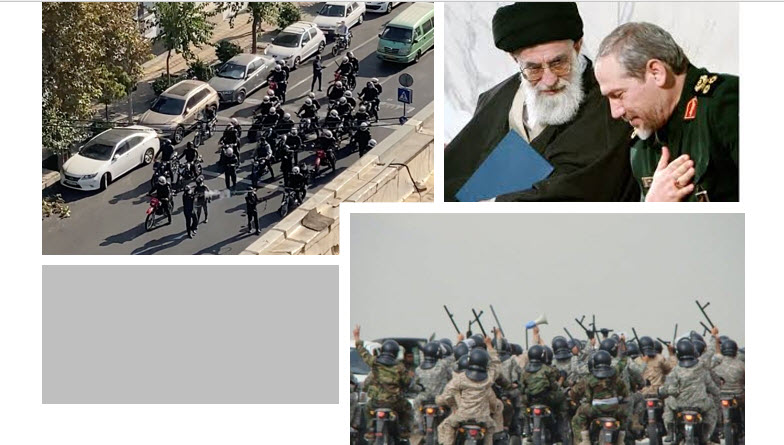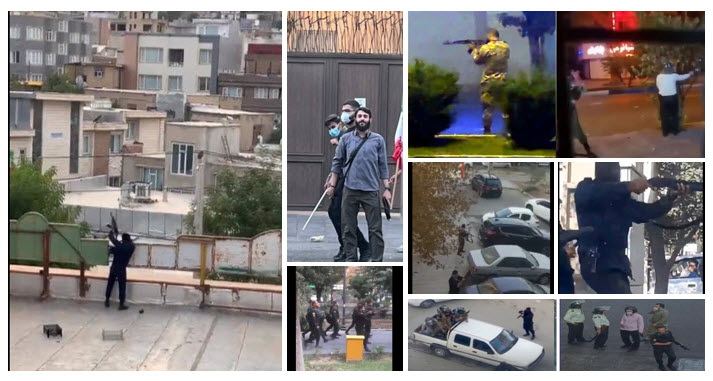
On November 26, Ebrahim Raisi, the president of the mullahs’ regime, paid a visit to the regime’s special forces known as ‘Fatehin.’ He complimented them and said, “You shined well.” His remark was in response to this infamous unit’s involvement in the repression of people during the recent protests.
This special unit is primarily responsible for operations in Greater Tehran. However, the IRGC has decided to establish it in all provinces as well. The Airborne Special Operations Unit was founded in 1999 by the Basijis of West Tehran in the Meqdad district.
“On July 9, 1999, a need was evident in Basij’s security complex, which was that there was no centralized, coherent trained force in Basij,” said Mahmoud Hashemi, the commander of this unit, in an interview with the state-run news agency Tasnim on April 19, 2020, about the reason for the formation of this unit.

“It was decided that a group of IRGC officials form this unit under the command of Majid Fathinejad, the commander of our base at the time, and troop training began.”
“A year later, the forces were organized, in the conflicts that happened on the anniversary of the sedition of 1999, which was a bit more intense than the previous year, this battalion was stationed in the Meqdad district,” he continued. We intervened where necessary under the command of Tehran’s command base.”
He went on to say that because most IRGC officials were astounded, most IRGC academies requested that this unit share their experiences. Finally, in 2012, this unit was officially registered. Former IRCG Commander-in-Chief Mohammad Jafari gave this unit its current name.

But its most important mission was to protect the Shrine of Lady Zaynab in Damascus during the Syrian war. They were the first Basij paramilitary member to enter Syria’s civil war to aid Bashar Assad in his slaughter of his own people.
It is also claimed that until a month ago, the environmental and peripheral protection of the Behesht Zahra Organization was the responsibility of military police, but this protection was delegated to the Fatehin Special Unit in a memorandum of understanding.
As the commanders of this criminal unit admitted, their main mission is to counter uprisings and popular protests, and they are supported by the Revolutionary Guards’ supreme commanders due to their criminal activities.


MEK Iran (follow us on Twitter and Facebook), Maryam Rajavi’s on her site, Twitter & Facebook, NCRI (Twitter & Facebook), and People’s Mojahedin Organization of Iran – MEK IRAN – YouTub







